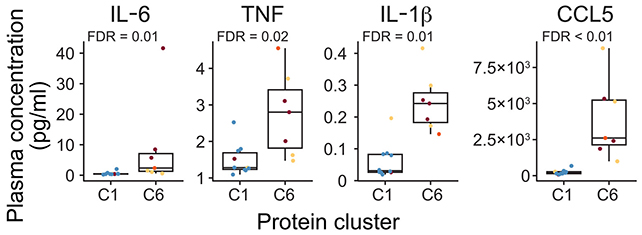After years of research, scientists have discovered that rheumatoid arthritis is often preceded by a silent, symptomless stage. Catching the autoimmune disorder earlier could mean lessening the painful joint inflammation and damage, or even stopping its progression.
Some people who develop rheumatoid arthritis (RA) are deemed at risk years before the appearance of joint inflammation (synovitis), due to the presence of anticitrullinated protein antibodies (ACPAs) in their blood. However, not everyone with ACPAs develops RA, and it hasn’t been clear why.
The latest study reveals new warning signs doctors could use to identify who is most at risk, which include inflammatory proteins in the blood and the behavior of immune cells (which drive RA).
Related: Arthritis Affects Thousands of Kids, And One Piece of Advice Is Crucial
The study is the work of a US team, led by researchers from the Allen Institute of Immunology, the University of California, San Diego, and the University of Colorado Anschutz Medical Campus (CU Anschutz).
“Our results support the concept that RA inflammatory disease begins well before the onset of active synovitis, earlier than clinically appreciated,” write the researchers in their published paper.
“This has implications for decisions about when to initiate preemptive treatment.”
The researchers followed the progress of 45 individuals determined to be at risk of RA based on being ACPA positive, 16 of whom went on to develop full RA. Together with data from healthy controls, this gave the team a host of biological comparison points to look at.
In the blood of the at-risk participants, proteins linked to the immune system were much more abundant and active, while B cells (which make antibodies) and T cells (which coordinate B cells) showed signs of being in a higher stage of alert.
Closer to an RA diagnosis, the number of T cells and B cells primed for inflammation action increased, including T cells that would otherwise be more neutrally configured. It’s as if the immune system can see what’s coming.

There was some overlap between those who did and didn’t develop RA in terms of these fundamental changes, but they give us a clearer picture of how the at-risk stage develops into a full clinical diagnosis.
“These findings characterize pathogenesis of the ACPA+ at-risk stage and support the concept that the disease begins much earlier than clinical RA,” write the researchers.
These are brand-new findings, so any treatments are still a way off, but knowing more about how the immune system ramps up and shifts its activity before RA starts could ultimately help researchers target those changes.
The drug abatacept is already in use as a way of delaying RA in high-risk cases, and there’s evidence that it helps to reverse some of the immune system activity that’s been highlighted here – raising hopes for potential treatments in the future.
“We expect that going forward the findings from this study will support additional studies … to better predict who will get RA, identify potential biologic targets for preventing RA as well as identify ways to improve treatments,” says CU Anschutz rheumatologist Kevin Deane.
The research has been published in Science Translational Medicine.
Source link


